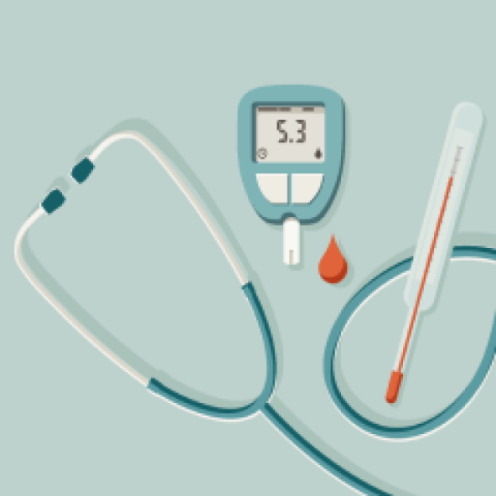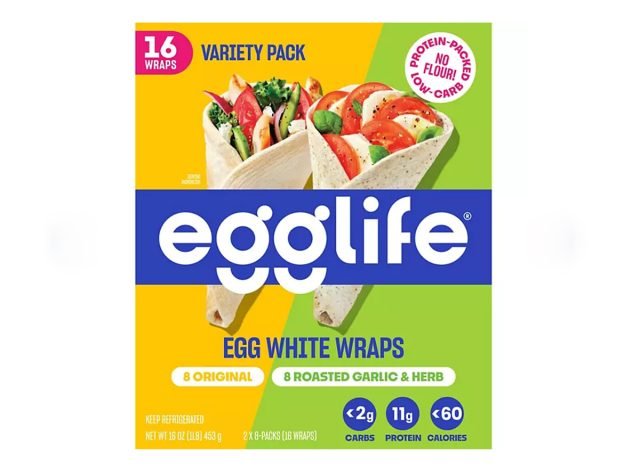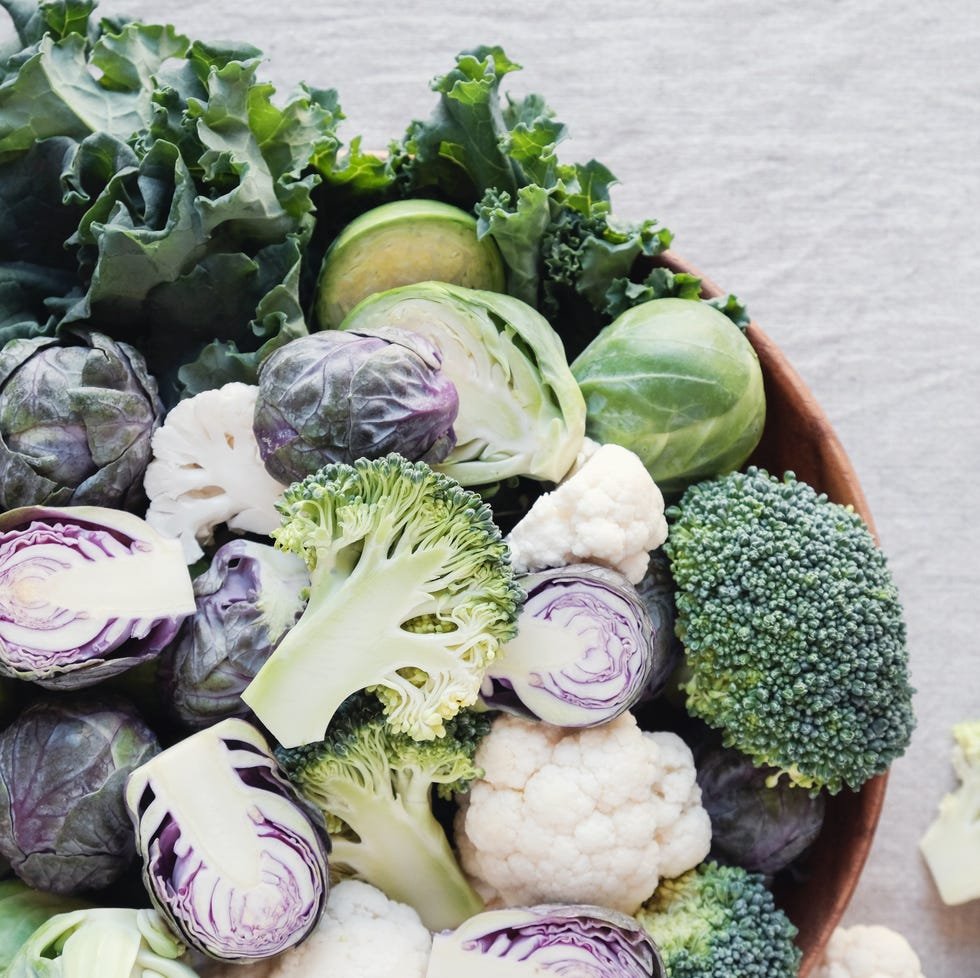Spend more than 30 seconds on TikTok, and you’ll hear fitness influencers sing the praises of intermittent fasting. This eating plan is touted as a “lifestyle change” rather than a diet, where people consume calories on a 16:8 plan (fast for 16 hours; eat normally for eight hours), a 5:2 plan (eat normally for five days; fast for two days) or another variation.

Mihailomilovanovic / Getty Images
The purported benefits of intermittent fasting are numerous: It can curb late-night eating, reduce inflammation, lower your risk of chronic diseases like diabetes and cardiovascular disease, improve gut health and, of course, lead to weight loss.
But for folks who may be affected by disordered eating, intermittent fasting could lead down a slippery slope.
An estimated 9% of the U.S. — or about 28.8 million people — will have an eating disorder in their lifetimes. While eating disorders like anorexia nervosa and bulimia must meet specific diagnostic criteria outlined in the Diagnostic and Statistical Manual of Mental Disorders, disordered eating can apply to anyone with body image issues, dieting and/or psychological distress around food. People with disordered eating behaviors might hide in plain sight behind popular diets and wellness trends like intermittent fasting, which provides the perfect cover for restrictive eating.
It’s A Socially Acceptable Disguise

Abraham Gonzalez Fernandez / Getty Images
Most people would be concerned to hear a friend say they were starving themselves, but no one bats an eye with intermittent fasting.
“Intermittent fasting can sometimes serve as a socially acceptable disguise for disordered eating behaviors,” said registered dietitian nutritionist Becky Mehr, director of outpatient nutrition at The Renfrew Center, a network of eating disorder treatment facilities.
“While it is often marketed as a tool for weight loss, improving metabolic health or simplifying eating patterns, it can become problematic — especially for those with a history of eating disorders,” she said.
Mehr explained that because scheduled fasting requires skipping meals and ignoring hunger cues, it’ll hide your disordered eating without raising concern. In fact, it could promote the opposite: praise for weight loss or “perceived discipline” that could reinforce harmful behaviors.
Mehr adds, “Our bodies are not machines or calculators — they don’t thrive on rigid calorie restrictions or time-bound nourishment.”
Is It Worth the Risk?

OsakaWayne Studios / Getty Images
Dr. Anne Marie O’Melia, chief clinical and quality officer at the Eating Recovery Center, told HuffPost, “For individuals who are genetically and environmentally vulnerable to developing eating disorders, any form of caloric restriction or adherence to rigid food rules — including intermittent fasting — significantly increases their risk.”
In fact, recent research has shown that many young women who participated in intermittent fasting had traits of eating disorder behaviors such as overeating, binge eating, vomiting, laxative use, compulsive exercise and fasting.
“We know that dieting and restriction are the number one predictors of eating disorder onset, particularly in adolescents and young adults,” O’Melia explained. “The promise of short-term benefits like weight loss or metabolic changes pales in comparison to the real and devastating risks: Eating disorders have significant psychiatric and medical consequences, and the highest mortality rate among mental illnesses.”
Intermittent fasting “may seem harmless or even beneficial at first, but for too many people, it is a gateway into long-term, life-threatening struggles with food and body,” she added.
Bottom line: The potential benefits of intermittent fasting do not outweigh the risks of developing or worsening an eating disorder.
Look At Your Mindset
Related: This Picky Eater Showdown Will Be Tough For People Without Refined Palates

Jordan Lye via Getty Images
So how do you know if it’s safe to try intermittent fasting? Our experts shared that it’s all in your head — or, more specifically, in your mindset.
“The key difference lies in mindset, intent and impact on daily life,” Mehr said. If you are able to do intermittent fasting without obsessive thoughts about food or body image, and without rigid food rules that impair your daily functioning, then it might be OK. For everyone else, it can quickly spiral into disordered eating.
This might look like “experiencing intense anxiety about breaking ‘rules,’ obsessing over food, feeling shame about eating, avoiding social events involving food or using fasting as a way to control weight at all costs,” according to O’Melia.
“No one sets out thinking, ‘I want to develop an eating disorder,’ but for individuals with certain genetic, psychological and environmental risk factors, seemingly healthy choices can inadvertently lead to dangerous patterns,” O’Melia said.
Signs intermittent fasting is triggering disordered eating include:
-
Compensatory behaviors, like excessive exercise or purging.
-
Avoiding social meals that don’t fall in your eating window.
-
Increasing preoccupation with food, body image or weight.
-
Low energy, mood disturbances, sleep issues or trouble concentrating.
-
Only eating “safe” or “healthy” foods.
-
Eating in isolation; secrecy or hiding of eating behaviors.
-
Binge eating symptoms, feeling of loss of control when eating.
-
Feeling anxiety, guilt or shame if you eat outside your “allowed” window.
-
Experiencing medical issues such as fainting, amenorrhea, GI distress, or fatigue, dizziness, weakness, irritability or obsessional thinking about food.
-
Negative or emotionally reactive responses to expressions of concern about changes in behavior.
-
Any additional or increasing behaviors that can be associated with eating disorders, such as laxative use, changes in exercise patterns, developing food rules about the types of food eaten rather than just the times that food is eaten.
-
If fasting starts to feel like an obligation instead of a choice — or affects your ability to enjoy life — it may be time to reevaluate.
“It’s critical to remember that the human body is incredibly complex — and it thrives when treated with compassion, not punishment,” O’Melia said.
Who Shouldn’t Do Intermittent Fasting?

Fiordaliso / Getty Images
“Most people” should not do intermittent fasting, Mehr said, and “especially those with a history of eating disorders, mental health struggles or nutrient deficiencies.”
O’Melia added, “Anyone with a personal history or a significant family history of an eating disorder, disordered eating, body dysmorphia, significant anxiety or depression, trauma history, or compulsive exercise patterns should avoid intermittent fasting.”
If you have a fragile relationship with food and could be affected by self-imposed rules or restrictions around when you can eat, then intermittent fasting is not for you.
“Our bodies are designed to let us know when they need fuel,” Mehr explained. “Ignoring those cues can lead to preoccupation with food, disrupted metabolism and emotional distress. [Intermittent fasting] is like telling someone to only use the bathroom during certain hours — it creates fixation, not freedom.”
Our experts agreed that no one should do intermittent fasting without close guidance by their medical provider.
Try This Instead

Sellyhutapea / Getty Images
Our experts were quick to slam any structured diet or food group restriction (other than for allergies).
“Eating should be a source of nourishment and pleasure, not a battleground,” O’Melia explained. “I encourage patients to focus on balanced meals, variety, satisfaction and listening to their bodies.”
Both experts recommend intuitive eating that listens to hunger and fullness cues. This includes eating a wide variety of foods without guilt (yes, desserts too!); respecting body diversity; participating in joyful movement; managing your stress and getting enough sleep; and centering mental, emotional and social health alongside physical health. And be gentle with yourself when unlearning toxic diet culture ideals.
“Food is not just fuel; it’s joy, connection, culture and comfort,” Mehr said. “A healthy eating pattern respects both your body’s needs and your lived experience.”
“Instead of listening to external rules, we should be learning to trust our bodies,” Mehr added. “All bodies are different. All bodies are valuable. And food should never be a source of shame or punishment.”
If you’re struggling with an eating disorder, call or text 988 or chat 988lifeline.org for support.This article originally appeared on HuffPost.
Also in Food: People Are Sharing The “Unneccessary” Cooking Rules They Stopped Following Ages Ago
Also in Food: If You Can’t Name At Least 10 Of These Fruits, You’ve Got The Taste Buds Of A Toddler
Also in Food: If Your Fruit And Vegetable Knowledge Is Actually Good, Prove It By Getting 22/27 Of These Questions Right







